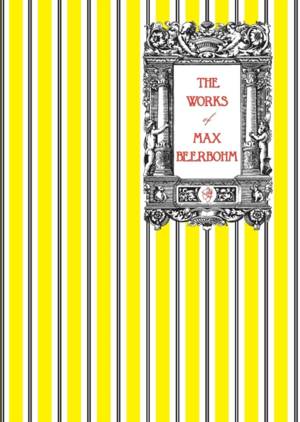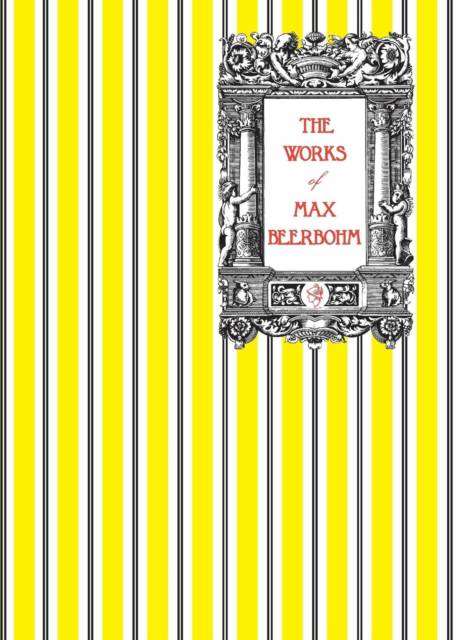
Bedankt voor het vertrouwen het afgelopen jaar! Om jou te bedanken bieden we GRATIS verzending (in België) aan op alles gedurende de hele maand januari.
- Afhalen na 1 uur in een winkel met voorraad
- In januari gratis thuislevering in België
- Ruim aanbod met 7 miljoen producten
Bedankt voor het vertrouwen het afgelopen jaar! Om jou te bedanken bieden we GRATIS verzending (in België) aan op alles gedurende de hele maand januari.
- Afhalen na 1 uur in een winkel met voorraad
- In januari gratis thuislevering in België
- Ruim aanbod met 7 miljoen producten
Zoeken
Omschrijving
Max Beerbohm's erudite wit and playful conceits represent the pinnacle of the Aesthetic period's capacity to laugh at itself whilst celebrating itself. This book was the author's first, and was presented by him (with tongue lodged firmly in cheek) as a 'collected works', an august memorial to a brilliant career. Included are all seven of his major early essays: Dandies and Dandies on the important distinction between true Regency foppery and its cruder modern notion; A Good Prince portraying the future Edward VIII as an already demanding baby monarch; 1880 and its very recent but already intriguingly faded charms; King George the Fourth rigorously reappraising the Regent; The Pervasion of Rouge celebrating the return of artifice after far too long a naturalcy; Poor Romeo! imagining the story behind a laughing-stock of the Regency stage; and Diminuendo charting the author's own course, firstly to disillusion, and then to retirement in outmoded greatness at the age of 23! Though these essays were justly acclaimed in their time, their magnificence is such that they also demand the highest accolades in ours, replete as they are with undiminished colour and spectacle, humour and barbed excellence. MAX BEERBOHM was born in 1872. He attended Merton College in Oxford, but left without completing his degree. He was a regular contributor to magazines (where these essays originally appeared) and a caricaturist of world renown. He married Florence Kahn in 1910. They moved to Rapallo in Italy and stayed there, apart from the period of the two world wars, for the rest of their lives. Knighted in 1939, Sir Max died in 1956.
Specificaties
Betrokkenen
- Auteur(s):
- Uitgeverij:
Inhoud
- Aantal bladzijden:
- 188
- Taal:
- Engels
Eigenschappen
- Productcode (EAN):
- 9780987483577
- Verschijningsdatum:
- 15/12/2013
- Uitvoering:
- Paperback
- Formaat:
- Trade paperback (VS)
- Afmetingen:
- 127 mm x 178 mm
- Gewicht:
- 167 g

Alleen bij Standaard Boekhandel
+ 37 punten op je klantenkaart van Standaard Boekhandel
Beoordelingen
We publiceren alleen reviews die voldoen aan de voorwaarden voor reviews. Bekijk onze voorwaarden voor reviews.









